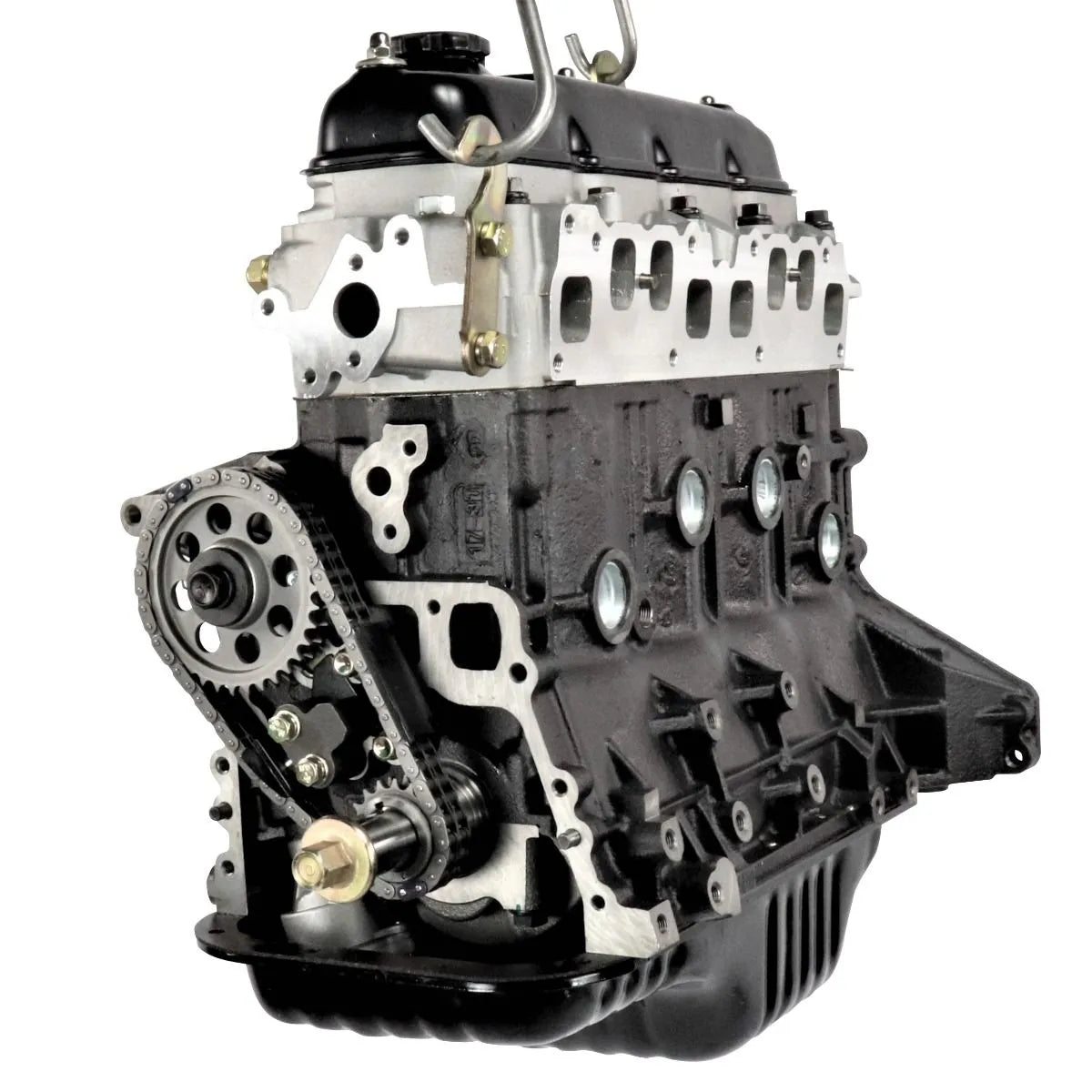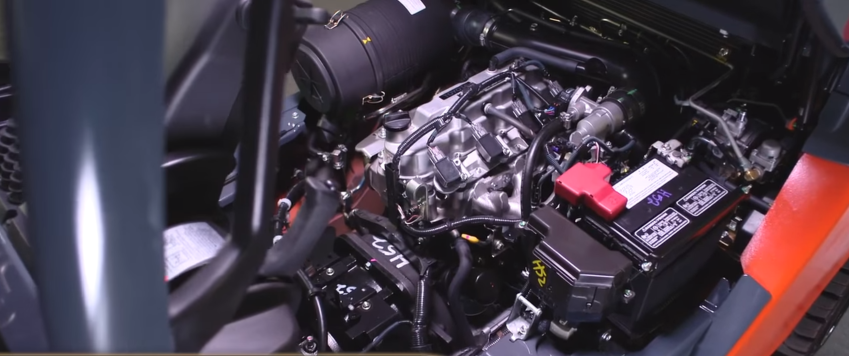The Best Maintenance Tips for Maximizing the Lifespan of Your 4Y Engine
Wiki Article
Checking Out the Different Sorts Of Engine: Which One Fits Your Demands?
Interior combustion engines continue to control due to their integrity, while electric engines are gaining grip for their sustainability. Hybrid engines offer a versatile compromise, and diesel engines stand out for their power in demanding applications.
Inner Combustion Engines
Interior burning engines (ICEs) are the backbone of modern-day transport, powering a huge range of vehicles from autos to planes. These engines operate the concept of converting gas into power with a collection of controlled surges within a combustion chamber. One of the most typical kinds of ICEs include fuel engines, diesel engines, and rotary engines, each created to meet certain performance and performance needs.Fuel engines generally make use of stimulate ignition, while diesel motor rely on compression ignition, causing distinct differences in gas efficiency and power outcome (4y engine). Rotating engines, or Wankel engines, provide a portable design and smooth operation, yet are less frequently made use of in mainstream applications
ICEs have actually undertaken substantial advancements in technology, including the introduction of turbocharging and fuel injection systems, which enhance general effectiveness and performance. Regardless of their efficiency enhancements, ICEs deal with boosting examination due to their ecological influence, especially concerning greenhouse gas discharges.
Electric Engines
As concerns concerning ecological sustainability and nonrenewable fuel source reliance grow, electric engines have actually become an engaging option to internal burning engines. These engines make use of electric motors powered by batteries or fuel cells, providing a cleaner and extra effective motive powers.One of the key benefits of electric engines is their reduced exhausts. Unlike traditional engines that burn nonrenewable fuel sources, electric engines produce absolutely no tailpipe discharges, substantially lowering air contamination and adding to improved public wellness. Furthermore, the efficiency of electrical motors typically surpasses that of inner combustion engines, transforming a higher percentage of energy from the source of power right into usable power for movement.
Electric engines are additionally noteworthy for their quiet operation, making them ideal for city environments. 4y engine. The simpleness of their design leads to fewer moving components, which can result in lowered maintenance prices and increased integrity in time
Nonetheless, challenges continue to be, including battery production influences, charging framework, and variety constraints. Despite these obstacles, the expanding investment in electrical vehicle innovation and renewable resource sources factors towards a promising future for electric engines, placed to play an essential function in the change toward sustainable transport.
Hybrid Engines
Blending the advantages of both electrical and traditional internal burning engines, hybrid engines stand for a functional service in the mission for reliable and sustainable transportation. These engines combine a fuel or diesel motor with an electric motor, enabling improved gas efficiency and minimized exhausts contrasted to traditional automobiles.Crossbreed engines run in a number of modes, making use of the electrical motor for low-speed driving and the interior burning engine for higher speeds or when even more power is needed. This vibrant procedure not just boosts gas economy but also contributes to a smoother driving experience. Regenerative braking is another vital function, catching energy usually shed during braking and redirecting it to charge the battery.

As consumers increasingly focus on eco-friendliness, crossbreed engines stand apart as a practical selection, using an effective equilibrium of performance, performance, and ecological responsibility. This flexibility makes them appropriate for urban travelling and long-distance travel alike.
Diesel Motor
Efficiency and power are characteristics of diesel engines, which have actually long been favored for their effectiveness and fuel economy. These engines operate the concept of compression ignition, where air is compressed to a heat before gas is injected, sparking it without the need for trigger plugs. This process allows diesel engines to accomplish greater thermal effectiveness contrasted to gas engines, equating into better fuel gas mileage and reduced carbon dioxide exhausts.Diesel motor are particularly fit for heavy-duty applications such as trucks, buses, and commercial equipment, where torque and resilience are extremely important. Their design usually consists of stronger components to endure the greater stress created navigate to this website throughout operation, resulting in longer service life and minimized upkeep prices.

Alternative Fuel Engines
While diesel motor have long dominated the landscape of heavy-duty source of power, alternate fuel engines are acquiring grip as sensible choices for a much more sustainable future. These engines make use of a range of fuels, such as compressed all-natural gas (CNG), hydrogen, gas, and ethanol, aiming to lower greenhouse gas discharges and reliance on fossil gas.One substantial advantage of alternative gas engines is their potential to lower carbon impacts. As an example, CNG engines release fewer toxins compared to traditional diesel motor, making them suitable for city transit systems and fleets looking for to improve air top quality. Ethanol, originated from biomass, not just reduces discharges but additionally supports farming economies.
Hydrogen gas cells represent a sophisticated development in this world, providing zero-emission power via a chemical response in between hydrogen and oxygen. Obstacles such as facilities development and production prices stay obstacles to widespread adoption.
Verdict
In final thought, picking the ideal engine type necessitates cautious factor to consider of details needs and preferences. Interior combustion engines use integrity, while electrical engines focus on sustainability and reduced maintenance. Hybrid engines combine the benefits of both, boosting performance, great post to read whereas diesel motor provide exceptional power and torque for durable applications. Alternate fuel engines present green alternatives, albeit with possible framework obstacles. Inevitably, a thorough analysis of driving routines and ecological values will help with an informed decision regarding engine selection.Hybrid engines offer a functional concession, and diesel engines stand out for their power in demanding applications. The most usual kinds of ICEs include gasoline engines, diesel engines, and rotating engines, each created to meet specific efficiency and effectiveness needs.
Unlike traditional engines that melt fossil fuels, electrical engines create zero tailpipe exhausts, dramatically reducing air pollution and adding to enhanced public wellness.Hybrid engines operate in a number of modes, making use of the electric motor for low-speed driving and the inner combustion engine for greater speeds or a knockout post when even more power is needed. Crossbreed engines integrate the benefits of both, improving efficiency, whereas diesel engines supply superior power and torque for sturdy applications.
Report this wiki page